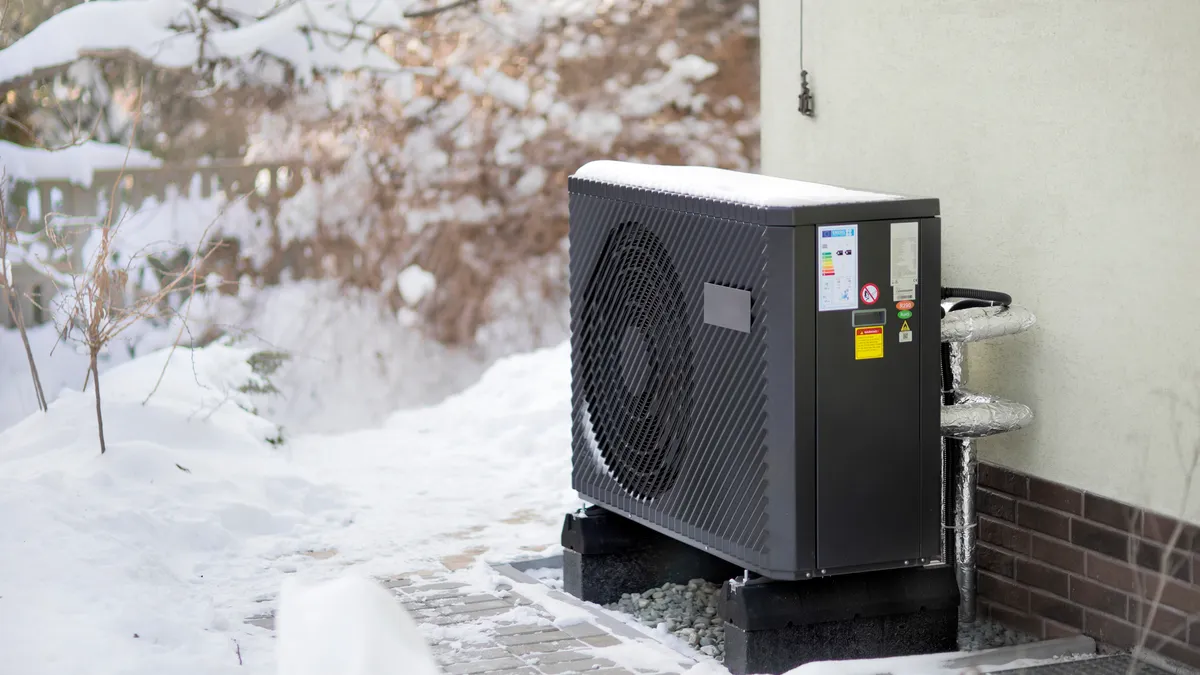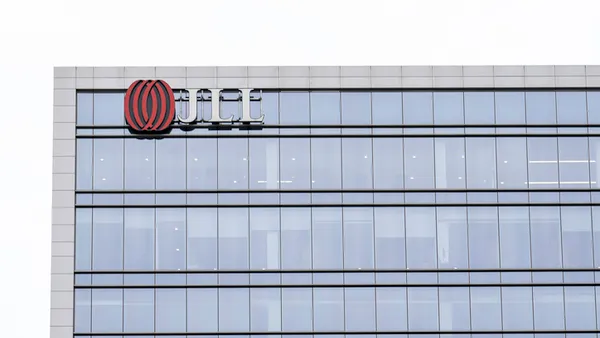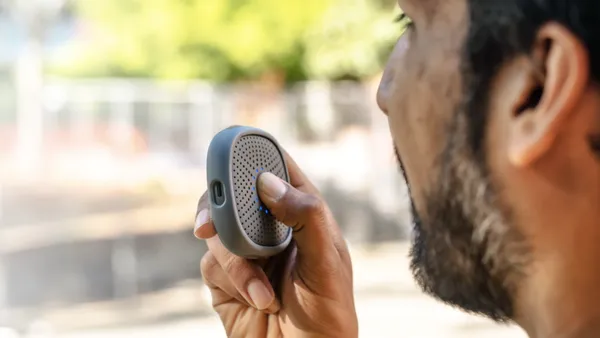Dive Brief:
- Bosch, Daikin, Midea and Johnson Controls successfully produced heat pump prototypes as part of the U.S. Department of Energy’s Residential Cold Climate Heat Pump Technology Challenge, according to a Jan. 8 release.
- Those manufacturers will join Lennox International, Carrier, Trane Technologies and Rheem in the next phase of the challenge, where they will install more than 23 prototypes in various cold climate locations throughout the U.S. and Canada over the next year.
- Although primarily focused on residential applications, the DOE challenge aims to encourage the adoption of heat pump technologies in offices, schools, hospitals, military bases and other critical facilities in cold climates.
Dive Insight:
Energy use for heating and cooling buildings accounts for more than 35% of U.S. energy consumption, driving carbon emissions that fuel climate change, jeopardize public health and pollute local ecosystems, according to the DOE. Unlike heaters that run on natural gas or heating oil, heat pumps only use electricity to extract heat from the air to provide climate control.
Heat pumps reduce on-site greenhouse gas emissions by up to 50% compared with gas boilers, the DOE says. Thus federal and state policymakers have lately placed a greater emphasis on heat pump technology. Last year, 25 governors pledged to boost their states’ heat pump installations to 20 million by 2030. Until recently, however, heat pumps have not been used in areas that experience subfreezing temperatures for extended periods of time.
These eight manufacturing partners have successfully developed heat pump prototypes that deliver 100% heating capacity without the use of auxiliary heat and with significantly higher efficiencies at 5 degrees Fahrenheit, the DOE said. It now plans to work with close to 30 state, utility and other partners committed to encouraging the adoption of cold climate heat pumps to develop programs, incentives, educational initiatives and outreach campaigns that help consumers better understand the benefits of these new designs.
In addition to the benefits heat pumps provide in terms of lower energy costs, improved public health and their effect on climate change, they can qualify for additional savings through the Inflation Reduction Act’s energy efficient tax credits, the DOE noted.














